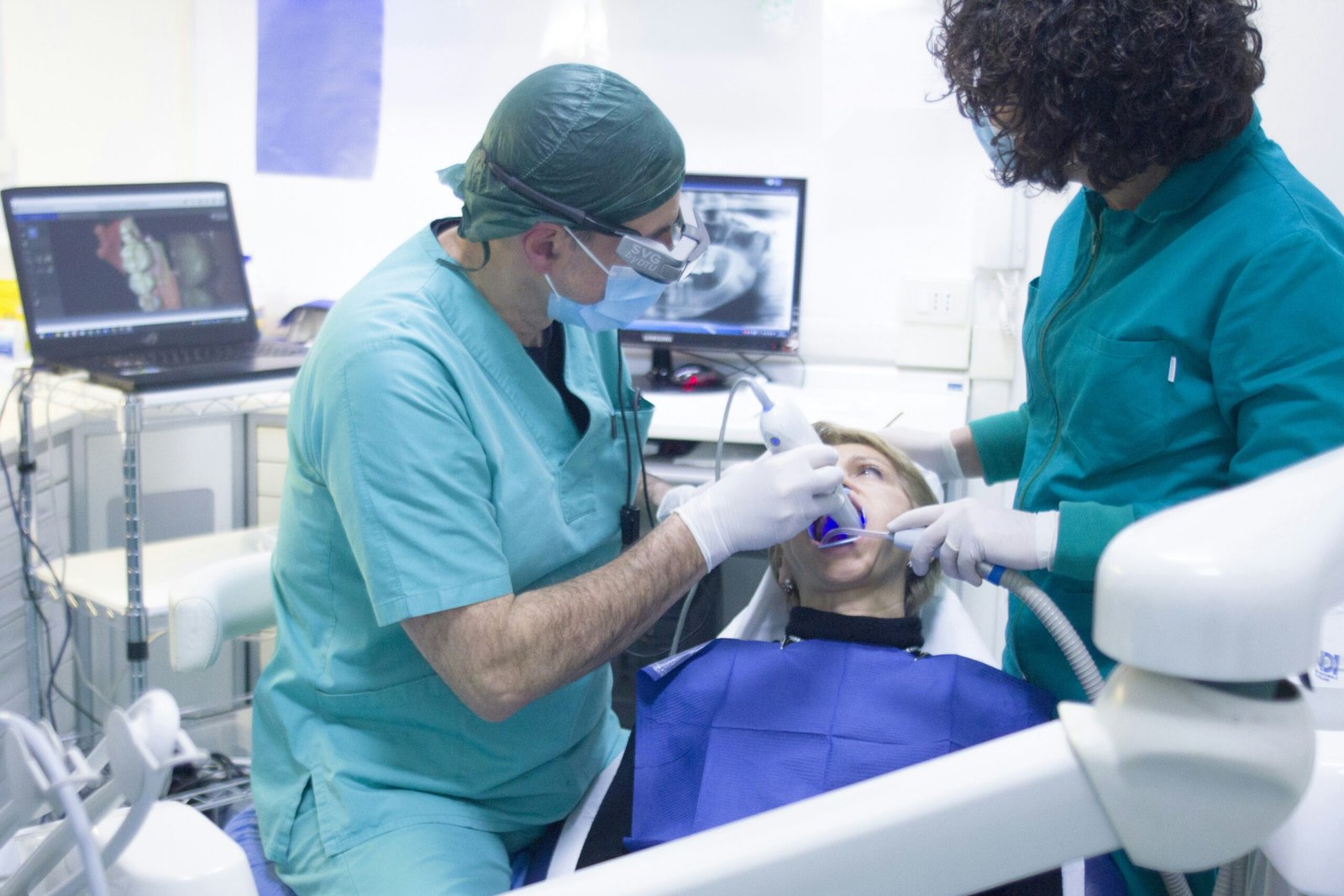Exploring the Role of Genetics in Dental Health: Understanding Inherited Factors
Genetics intricately interplays with dental health, impacting a myriad of conditions ranging from tooth decay susceptibility to the alignment of our bite. While environmental factors like diet and oral hygiene practices undeniably play pivotal roles in dental health, genetic predispositions offer invaluable insights into understanding, preventing, and treating various dental issues.
One of the most prominent genetic factors influencing dental health is the predisposition to tooth decay, also known as dental caries. Research has identified specific genetic variations that contribute to an individual’s susceptibility to cavities. For instance, variations in genes responsible for enamel formation and saliva composition can affect the resilience of teeth against decay. Understanding these genetic predispositions can guide tailored preventive measures, such as personalized oral hygiene routines and dietary adjustments, to mitigate the risk of developing cavities.
Similarly, genetics plays a crucial role in determining susceptibility to periodontal diseases, including gingivitis and periodontitis. Genetic variations can influence the body’s inflammatory response to bacteria in the oral cavity, thereby impacting the severity of gum disease. Individuals with certain genetic markers may have a heightened inflammatory response, increasing their vulnerability to periodontal issues. Recognizing these genetic predispositions enables targeted interventions, such as more frequent professional cleanings and tailored periodontal treatments, to manage and prevent gum disease more effectively.
Moreover, genetics contribute significantly to the development of malocclusions and orthodontic issues. The alignment of teeth and the structure of the jaw are influenced by genetic factors inherited from parents. Variations in genes regulating craniofacial development can lead to conditions like overcrowding, overbites, or underbites. Orthodontic treatments, such as braces or clear aligners, can address these issues, but understanding the underlying genetic factors can help orthodontists devise more personalized and efficient treatment plans.
Additionally, genetic predispositions can affect oral health conditions such as oral cancer and temporomandibular joint disorders (TMJ). Certain genetic variations increase the risk of developing oral cancer, emphasizing the importance of regular screenings and lifestyle modifications to reduce risk factors like smoking and excessive alcohol consumption. Similarly, understanding the genetic underpinnings of TMJ disorders can inform targeted therapies, ranging from physical therapy to surgical interventions, to alleviate pain and improve jaw function.
In conclusion, while environmental factors undoubtedly influence dental health, genetics play a significant role in shaping various aspects of oral health and disease susceptibility. By unraveling the genetic predispositions to dental conditions, healthcare professionals can offer more personalized preventive care and treatment strategies, ultimately promoting better oral health outcomes for individuals.
Understanding Genetic Factors:
Our genetic makeup exerts a profound influence on dental health, dictating susceptibility to conditions like tooth decay, gum disease, and malocclusions. Variations in specific genes can impact fundamental aspects such as the strength of tooth enamel, the integrity of gum tissues, and the alignment of teeth, thereby influencing an individual’s predisposition to various dental issues.
Tooth decay, commonly known as dental caries, is heavily influenced by genetic factors. Genes responsible for enamel formation and composition play a crucial role in determining the resilience of teeth against decay. Variations in these genes can compromise enamel strength, rendering individuals more susceptible to cavities. Likewise, genetic predispositions can influence saliva composition, affecting its ability to buffer acids and remineralize tooth enamel, further impacting susceptibility to decay.
Gum disease, encompassing conditions like gingivitis and periodontitis, also exhibits genetic links. Certain genetic variations can influence the body’s inflammatory response to oral bacteria, predisposing individuals to heightened gum inflammation and increased susceptibility to periodontal diseases. Genes involved in immune regulation and tissue remodeling play pivotal roles in the progression and severity of gum disease.
Furthermore, malocclusions, characterized by misalignments of teeth and discrepancies in jaw structure, are influenced by genetic factors. Inherited variations in genes governing craniofacial development can lead to abnormalities in dental alignment and jaw positioning. These genetic predispositions contribute to conditions such as overcrowding, overbites, or underbites, necessitating orthodontic interventions to correct alignment issues and improve oral function.
Understanding the genetic underpinnings of dental health conditions empowers healthcare professionals to adopt more personalized approaches to prevention and treatment. By identifying individuals at higher genetic risk, tailored preventive strategies can be implemented, including targeted oral hygiene practices, dietary modifications, and early interventions to mitigate the progression of dental problems. Moreover, personalized treatment plans, such as orthodontic interventions or periodontal therapies, can be devised based on individual genetic profiles, optimizing outcomes and promoting long-term oral health.
Genetic Conditions Affecting Dental Health:
Several genetic conditions directly impact dental health. Examples include amelogenesis imperfecta, a disorder affecting enamel development, and ectodermal dysplasia, which can result in missing teeth and abnormal tooth structure. Understanding these conditions and their genetic basis is essential for providing appropriate care and support to affected individuals.
Family History and Dental Health:
A family history of certain dental conditions can serve as a valuable indicator of potential risks for individuals. If close relatives have experienced issues such as early tooth loss, gum disease, or jaw abnormalities, it’s essential to be proactive in maintaining good oral hygiene and seeking regular dental check-ups to detect and address any emerging problems promptly.
Genetics and Treatment Approaches:
In dentistry, knowledge of genetic factors can influence treatment approaches and outcomes. For example, individuals with a genetic predisposition to weak enamel may benefit from additional preventive measures such as fluoride treatments or dental sealants to protect their teeth from decay. Similarly, orthodontic treatment plans may be tailored to address specific genetic factors contributing to malocclusions.
Understanding the role of genetics in dental health is crucial for personalized preventive care and treatment strategies. By recognizing genetic predispositions and family patterns, individuals and dental professionals can work together to promote optimal oral health and address potential risks effectively.
Stay tuned for more insightful discussions on various aspects of dental health with 360 Dental Clinic – the best Van Nuys Family Dentistry!
!

Leave a Reply